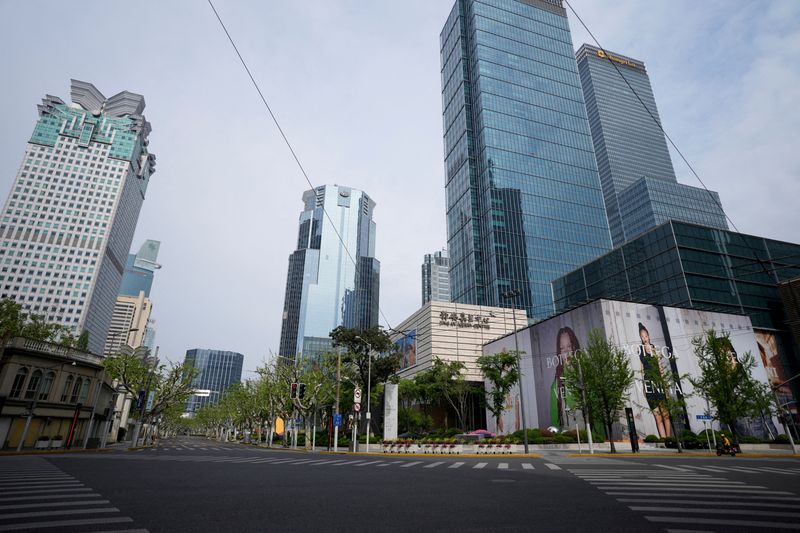By Casey Hall and Silvia Aloisi
SHANGHAI/MILAN (Reuters) - Chloe Kou, a 28-year old beauty brand marketing manager from Shanghai, won't be buying her usual "one or two" high-end handbags this year. Instead, she plans to save not spend, and that is a problem for luxury brands.
China's current zero-COVID policy, with its attendant lockdowns, restrictions and economic impact have taken their toll on consumers' financial security.
"Luxury clothing or handbags, I definitely think are unnecessary right now, [because of] the uncertainty around my financial situation," Kou said.
"I definitely feel that we need to protect ourselves from this uncertainty around the economy," she said.
If she is typical of many young, urban, middle class professionals in cities around China, that is bad news for luxury brands which have relied heavily on mainland China for stellar growth in recent years.
Last year, the country accounted for 21% of the world's personal luxury goods market, behind North America and Europe, according to consultancy Bain & Co. It is expected to become the top market by 2025.
As life returns to normal in many places, luxury sales have spiked in recent quarters, most notably in the United States, but falling sales in China threaten the growth ambitions of luxury brands.
Executives at luxury firms from LVMH to Watches of Switzerland and Estee Lauder (NYSE:EL) have in recent weeks conceded that their outlook depends somewhat on the length of lockdowns in China. However, the expectation of a swift consumer bounce back - as seen in 2020 after initial COVID lockdowns - remains prevalent, and a risk.
"We're anticipating a rebound, and we're prepared for it. We have bought inventory: we are investing ahead of the curve," Julie Brown, Burberry's chief operating and chief financial officer, said this week.
Richemont Chairman Johann Rupert, however, struck a cautious note on Friday, saying he thought the Chinese economy would suffer for longer than many anticipate, and that he expected consumer behaviour to be more "conservative" going forward.
"Even when China comes out of isolation, the bounce back will not be as quick and as immediate as we have seen in Europe and the United States, " he told reporters, adding he expected a number of major companies to lay people off.
Like Richemont, Burberry - which garners around a third of sales from Chinese shoppers - said 40% of its retail network in mainland China is currently out of commission, and online deliveries have also ground to a halt as warehouses are closed.
"We think it will be a more bumpy recovery than before," said Imke Wouters, retail and consumer goods partner at consultancy Oliver Wyman.
MIDDLE CLASS GROWTH ENGINE
The market value of top luxury brands was hit last August following the unveiling of Chinese President Xi Jinping’s "Common Prosperity" policies to reduce income inequality. Middle class Chinese shoppers had been driving luxury spending, but now it seemed, status symbols could be out of fashion.
Luxury executives, however, said back then the policies were likely to be targeted more at the ultra-wealthy.
"We don't see any reason to believe that this could be detrimental to the upper middle class, affluent class, that is the bulk of our customer base," LVMH chief financial officer Jean-Jacques Guiony said at the time.
Zero-COVID, however, could pose a larger threat than common prosperity, because it is likely to impact the majority of consumers in China - including would-be luxury shoppers.
It's difficult to quantify the extent of economic damage likely to be inflicted or predict when the current lockdowns will end and if they will be the last.
But China's long-vaunted rising middle class, a cohort now 400-million strong "is clearly squeezed in the current pandemic," Alicia García Herrero, chief economist for Asia Pacific at Natixis, said.
Young people have been disproportionately impacted, said Ben Cavender, director of the China Market Research Group, with youth unemployment on the rise, another issue for luxury brands that have voraciously pursued China's free-spending Gen-Z consumers in recent years.
"It won't be about buying stuff," he said, with life balance, and quality time with friends and loved ones likely to take precedent over status-affirming luxury logos.
